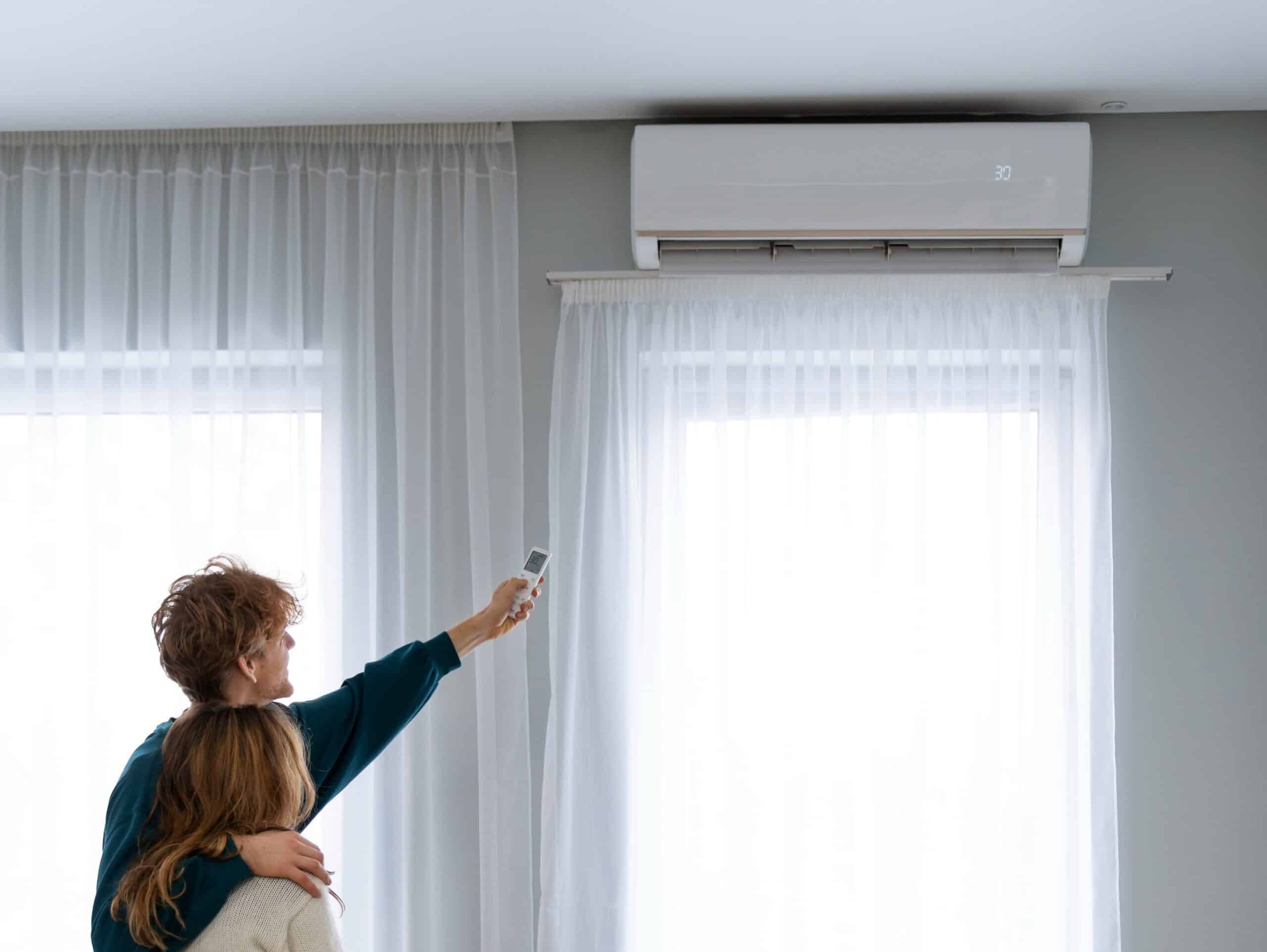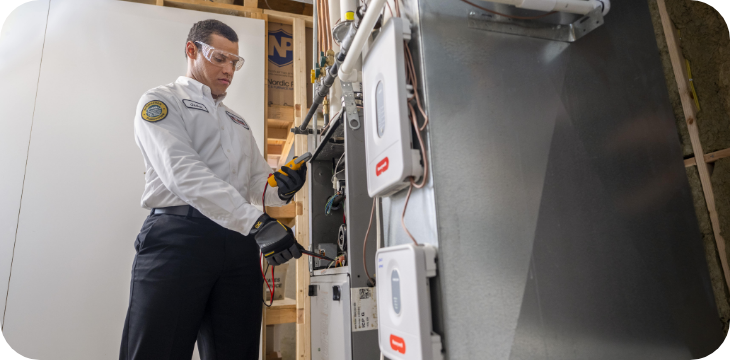Upgrade Your System Today with DMAKS HVAC Professional Help.
Upgrade Your System Today with DMAKS HVAC Professional Help.
Blog Article
Energy-Efficient Cooling And Heating Equipments to Save Money On Utility Costs
As power prices remain to climb, the importance of energy-efficient a/c systems comes to be significantly obvious. These systems not just promise considerable cost savings on utility bills but likewise contribute to a much more lasting future by reducing energy consumption. With various options available, including geothermal warm pumps and ductless mini-splits, homeowner encounter a plethora of choices that can boost convenience and air high quality. However, recognizing the key attributes and upkeep demands is vital to making the most of these advantages. What factors should be prioritized when choosing the right system for your demands?
Benefits of Energy-Efficient HVAC Equipments
Energy-efficient Cooling and heating systems offer many benefits that expand beyond plain expense financial savings. By consuming less energy, these systems add to lower greenhouse gas discharges, assisting to battle environment modification and promote sustainability.
Additionally, energy-efficient a/c systems often offer enhanced convenience degrees. Much of these systems include innovative innovation that enables better temperature control and improved air quality (DMAKS HVAC). This causes a much healthier interior setting, which is specifically vital for individuals with allergies or breathing problems
Additionally, investing in energy-efficient HVAC systems can boost building value. As more consumers prioritize energy efficiency, homes and structures outfitted with these systems might draw in greater quotes in the property market.
Kinds Of Energy-Efficient HVAC Options
How can property owners and companies select one of the most ideal energy-efficient cooling and heating options for their demands? The market provides a selection of energy-efficient a/c systems, each designed to improve comfort while reducing energy consumption.
One alternative is the variable cooling agent flow (VRF) system, which successfully controls the temperature level in several areas within a building. This system adjusts its refrigerant flow to match the wanted temperature, leading to substantial energy cost savings.
One more preferred option is geothermal heat pumps, which use the planet's steady temperature level to warm and great areas. By transferring warmth to and from the ground, these systems demonstrate remarkable effectiveness, especially in moderate environments.
Additionally, ductless mini-split systems supply an energy-efficient alternative for homes lacking ductwork. These systems enable zone-specific home heating and air conditioning, decreasing power waste in empty locations.
Lastly, high-efficiency heating systems and air conditioning system, with advanced SEER and AFUE scores, use trusted climate control while eating much less energy than standard models. By assessing these alternatives, homeowners and services can select an a/c system customized to their specific requirements and energy performance goals.
Key Functions to Take Into Consideration

Following, examine the kind of compressor made use of in the system. DMAKS HVAC. Variable-speed compressors can change their output to match the heating or cooling down demand, leading to enhanced convenience and energy financial savings compared to single-speed designs. Additionally, seek systems furnished with clever thermostats that provide programmable settings and remote accessibility, permitting far better control over energy usage
Another important feature is the system's air filtration capability. High-efficiency filters can improve interior air quality and reduce power intake by making sure the system runs effectively. Take into consideration the kind of cooling agent made use of; contemporary systems commonly utilize environment-friendly cooling agents that have a reduced ecological influence.
Finally, make sure that the system works with zoning innovation, which enables for customized temperature level control in various areas of your home, enhancing comfort while minimizing power use.
Tips for Choosing the Right System


Following, think about energy efficiency ratings, particularly the Seasonal Energy Efficiency Proportion (SEER) for cooling down systems and the Annual Gas Usage Efficiency (AFUE) for furnace. Higher scores suggest higher effectiveness, which can result in significant savings on energy bills over time.
In addition, review the type of heating and cooling system that best suits your lifestyle and spending plan. Choices include central air, ductless mini-splits, and heatpump, each with its own collection of advantages and drawbacks.
Do not overlook the importance of appropriate setup and sizing; an improperly sized system can result in inefficiencies and enhanced wear. Consult with a specialist Cooling and heating specialist i thought about this to get professional referrals tailored to your home's unique demands. This detailed approach will make certain that you pick an energy-efficient cooling and heating system that satisfies your demands and budget properly.
Maintenance for Optimum Efficiency
When the appropriate HVAC system is in area, recurring maintenance ends up being vital to ensuring ideal effectiveness and long life. A well-kept system runs extra effectively, resulting in lower power useful reference intake and reduced utility expenses. Normal evaluations and tune-ups ought to be set up a minimum of two times a year-- as soon as before the cooling season and when before the heating season.

Home owners must also be attentive about checking their a/c system's performance. Unusual sounds, varying temperature levels, or enhanced power expenses can indicate underlying issues that need immediate attention. By attending to these concerns quickly, homeowners can avoid costly repairs and extend the life expectancy of their systems.
Buying a maintenance plan with a certified specialist not just boosts efficiency however additionally provides satisfaction, understanding that the system is running at its best. DMAKS HVAC. Routine upkeep is as a result necessary for maintaining energy effectiveness and minimizing general functional prices
Conclusion
Finally, energy-efficient cooling and heating systems present a viable option for lowering energy bills while enhancing comfort and air quality. By including innovative modern technologies and options such as geothermal heatpump and ductless mini-splits, homeowner can accomplish considerable power savings and add to environmental sustainability. Mindful factor to consider of system attributes and continuous upkeep additionally makes certain optimum efficiency, making energy-efficient systems a prudent financial investment for both financial and eco-friendly advantages.
Report this page